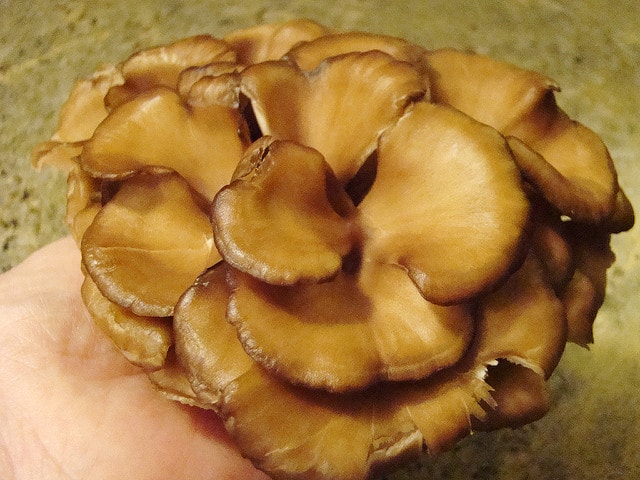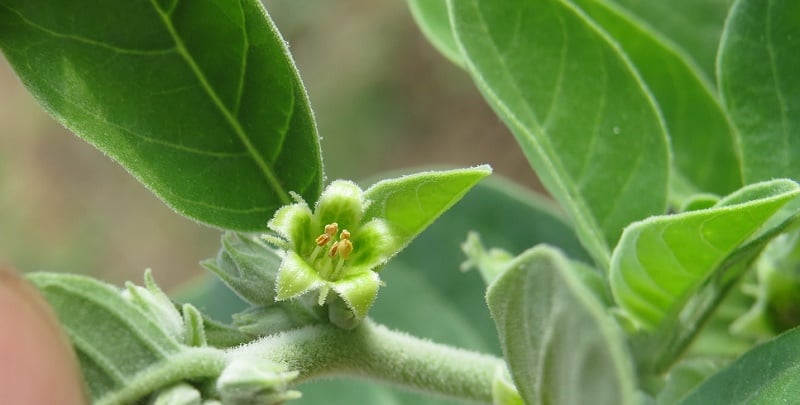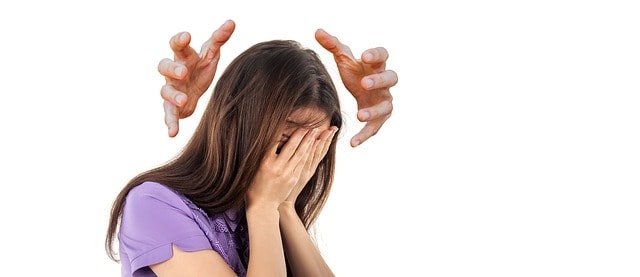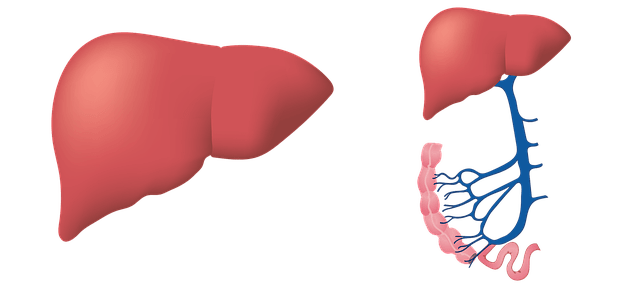Somehow I got through medical school, a PhD in pharmacology and 25 years as a practising doctor and never heard of 'adaptogens' until last year.

Essentially adaptogens are compounds that help us deal with or 'adapt to' the stresses and strains of life. Now that I know what 'adaptogens' are, I can think of lots of friends, colleagues and patients who could benefit from 'adaptogens'. Who am I fooling, I myself would like an adaptogen please.
Maybe we should just add adaptogens to the water supply like fluoride? Maybe I could get a Nobel Prize for helping billions of people with one simple public health intervention?
But wait, what exactly are 'adaptogens' and more importantly do 'adaptogens' actually work?
What Are Adaptogens?
Russian researchers coined the term 'adaptogen' in the 1940s to describe a class of botanicals that increase resistance to physical, chemical, and biological stresses. In theory, adaptogens build up general vitality, including the physical and mental capacity for work. An adaptogen is also described as a remedy utilized to restore strength and vigor and is typically taken for an extended period of time.
There is no equivalent in western medicine. Whew. Otherwise I would feel like a fraud and would have to revoke my medical license and recall all the patients I ever saw to offer them this magical cure.
Adaptogens are believed to affect the hypothalamic-pituitary-adrenal axis and the peripheral nervous system. This is the explanation commonly used to explain the ability of adaptogens to mitigate stress and other lifestyle related diseases.

In 1946, Seyle described the effect of stressors and broke stress down into two phases:
adaptation - when the body copes with the stressor and this learning helps the body deal not just with that stressor but also with other noxious agents (so a net benefit)
exhaustion- when the body is overwhelmed by the stressor and the net effect of stressor becomes negative.
According to the Seyle model, adaptogens are believed to help the body deal with stressful situations by expanding the adaptation phase while delaying or preventing the exhaustion phase.
Adaptogens can be classified in three major groups:
1. Mushrooms:
- maitake
- reishi
- cordyceps
2. Herbs:
- Panax ginseng (e.g., Korean or Asian ginseng)
- Panax cinquefoils
- Rhodiola (Rhodiola rosea), sometimes called Arctic root or golden root,
- Astragalus (Astragalus membrananceus and A. mongholicus, Family Fabaceae) also known as huang qi,
- Ashwagandha (Withania somnifera, Family Solanceae)
- Licorice root
- Schisandra
- Milk thistle (Silybum marianum)
- Cat's claw
- Gotu kola
3. Foods
Adaptogens form the backbone of many herbal formulas because of their perceived ability of bring harmony to an individuals life. Like I said, can you think of anyone (except maybe the Dalai Lama) who would not benefit from an adaptogen?
Each adaptogen has its own unique signature and identity according to herbal medicine. Herbalists will choose among the adaptogens to choose the adaptogen that best matches the individual.
For example, ashwagandha is used for people with anxiety and people with high cortisol levels while liquorice root would be preferred in someone who is burned out as it helps prolong the effects of cortisol. At least, that's the theory.
There are over 1000 adaptogens listed for sale on Amazon and range in price from a few dollars to $600.
Is This Philosophy Verified?
Adaptogens are widely used in Ayurvedic and Traditional Chinese Medicine but are not recognized as therapeutic agents in the type of western Cartesian medicine that I practice.
Is There Any Research?
There are 358 clinical trials related to the search terms 'adaptogen' or 'adaptogenic'. To put this into context there are over 3000 human clinical trials on insomnia which is a signature symptom related to the stress of modern living.
There are 43 clinical studies on rhodiolia, 266 on ginseng, 26 on coryceps and 18 on bacopa.
Ashwagandha is the overall winner in terms of publications and has 976 publications and 20 clinical trials.
Does Ashwaganda Reduce Stress?

Ashwagandha (family solanaceae) is fascinating. It is classified as a medha (mind) rasayana (rejuvenator) in Ayurvedic medicine). It even gets a special menition in the Kama Sutra as an aphrodisiac. (Now do I have your attention?).
It is also known as Indian ginseng but in fact has nothing to do with the ginseng family. Other names include winter cherry or Indian cherry.
The key textbook on herbal medicine says that ashwagandha is 'widely used as an adaptogen in the US but such employment is supported almost entirely by Indian tradition rather than by science'. (I love the ye olde English).
A 2012 study evaluated ashwagandha 300mg twice daily versus placebo for 60 days in 64 subjects with a history of chronic stress (1). This was a prospective, single center, randomized double blind study. Compliance and tolerability were assessed by follow up phone calls on days 15, 30 and 45.
Three patients were non-compliant with the study protocol. The investigators used intent to treat (64 subjects) for safety analysis and on-treatment (61 subjects) for efficacy analysis.
There was a statistically significant decrease in all stress assessment scales in the treatment as compared to the placebo arm of the study. There was also a statistically significant decrease in plasma cortisol levels in the treatment arm versus the control arm of the study.
A second study was carried out by the Indian Red cross Society and published in the Journal of evidence Based Complementary and Alternative Medicine last year (2). The study evaluated the effect of ashwagandha on body weight.
There are many links between chronic stress and obesity including higher intake of sugar laden comfort foods, reduced physical activity and the pro-obesity effects of stress hormones. A total of 52 subjects under chronic stress were randomized to either ashwagandha 300mg twice daily of placebo. Subjects were assessed at weeks 4 and 8.
Overall the study found that ashwagandha reduced serum cortisol, body weight and BMI.
Bottom line
There is very limited (but positive) information on ashwagandha for chronic stress.
Does Ginseng Improve Mental Performance?
Panax ginsneg is native to Korea and China. The dried roots contain over 300 glycosoidal saponins which are believed to be responsible for the therapeutic effects of ginseng.
A review from the Cochrane Dementia and Cognitive Improvement group evaluated ginseng for cognition (3). The researchers justified the need for the review based on the fact that ginseng is a herbal bestseller and accounts for over $350 million in China alone. A total of 9 trials were identified but only 5 of these trials (289 participants) had extractable data.
The authors concluded that here is a lack of convincing evidence to show a cognitive enhancing effect of Panax ginseng in healthy participants and no high quality evidence about its efficacy in patients with dementia.
Bottom line
As the Cochrane reviewers have said 'there is a lack of convincing evidence to support Panax ginseng for cognitive enhancing effects'.
Does Holy Basil Improve Libido? Protect The Liver?

Holy basil (Tulsi or Ocimum sanctum Linn) is a sacred medicinal plant in ancient Indian medicine. It contains a high ratio of phenylpropanoids, terpenes and flavonoids.
Holy basil is believed to play a role in liver cancer. Investigators from the Central Institute of Medicinal and Aromatic Plants in India carried out a complex computer modelling and an in vitro study to examine this claim (4). The study found that 'contrary to the assumption', holy basil did not show any anticancer activity on liver cancer cell lines. Oops.
A study from India evaluated the effect of holy basil on paracetemol induced liver injury in albino rats (5). The study divided the rats into five different groups: groups A and B were normal and experimental controls, groups C received holy basil 200 mg/kg BW/day, groups D received silymarin 100 mg/kg BW/day and holy basil 100 mg/kg BW/day and group E received silymarin 50 mg/kg BW/day p.o.
The study took place over 10 days. Liver enzymes and albumin globulin ratio were significantly (P < 0.01) closer to normal in groups C,D and E as compared to group B. There was also a reduction in sinusoidal congestion, cloudy swelling and fatty changes in the arms of the study treated with Holy Basil.
Unfortunately, this benefit was not borne out in human studies.
A study published last year in the Indian Journal of Clinical Biochemistry randomized 30 overweight/obese subjects to either Tulsi 250 mg twice daily or no intervention for 8 weeks (6). The study showed a statistically significant improvement in plasma lipids. However no significant changes in liver function tests were noted.
The only study that vaguely relates Holy Basil to sex looked at the effect of 3 plants, Ocimum sanctum, Drynaria quercifolia, and Annona squamosa, for activity against Neisseria gonorrhoeae (7). The plant extract showed anti-neisseria activity esepcially for drug resistant gonorrhoea.
Bottom line
At this time, holy basil is unproven as a liver protective or libido enhancing herb.
Does Astragalus Root Boost Immunity?
Astragalus is the root of the Astragalus membranaceous, family Fabacea. It is now cultivated worldwide but originated in northern China and Mongolia.
A Chinese study reported good outcomes using astragalus injections in patients with TB (8). As a practising infectious diseases doctor, I struggled to understand the abstract. The full paper is only available in Chinese. I think the issue was mainly due to the fact that the science may have been 'lost in translation' but I could not be sure of the quality of the research due to the lack of information and the quality of the writing.
Another Chinese study compared astragalus to placebo in 66 patients with congestive heart failure (9). The study found that astragalus significantly improved cardiac function and cellular immunity as compared to matched controls.
Yet another Chinese study looked at the effect of astragalus on immune function in patients who had experienced serious abdominal trauma (10). Administration of astragalus 20 ml intravenously improved cellular immunity in these patients. This was based on laboratory values and the study did not extend to evaluate the clinical relevance of these findings.
A small pilot study showed that Echinacea purpurea, Astragalus membranaceus and Glycyrrhiza glabra activated immune cells in human subjects as quantified by CD69 expression on CD4 and CD8 T cells (11).
Finally, a study from China looked at patients with severe sepsis and allocated them to either the placebo or Hengyan medicinal recipe group (n=22), in which patients were treated with Hengyan medicinal recipe 50 ml, 3 times daily, for 7 days (in addition to standard of care) (12).
Hengyan medicinal recipe was composed of Bombyx batryticatus 10 g, Cicada slough 10 g, Curcuma 10 g, Rhubarb 3 g, Radix astragalus 10 g, Radix ophiopogonis 10 g, Red ginseng 10 g, Paeony 10 g, Walnut kernel 10 g and Safflower 10 g. The researchers report improvements in the APACHE score (ICU severity score) and immune parameters in the Hengyan recipe arm.
It is pretty much impossible to isolate out the effects of astragalus in the above concoction. Additionally it is a bit hard to take this research too seriously as the first result reported in the study was the fact that the Hengyan group had a significant decrease in the number of bowel movements.
Bottom line
There is no convincing evidence that astragalus boosts immunity (or does anything).
Does Bacopa Monnieri Do Anything?
There are 18 clinical trials looking at human outcomes with Bacopa Monnieri. Fifteen of these trials looked at the nootropic or cognitive enhanching effects of Bacopa Monnieri.
Luckily for us, investigators from Thailand and the University of Illinois carried out a meta-analysis of the cognitive effects of Bacopa Monnieri (13).
Meta-analysis of 437 eligible subjects showed improved cognition by shortened Trail B test (-17.9 ms; 95% CI -24.6 to -11.2; p<0.001) and decreased choice reaction time (10.6 ms; 95% CI -12.1 to -9.2; p<0.001). The authors concluded that Bacopa Monnieri has 'the potential to improve cognition, particularly speed of attention' but that further studies are needed.
Bottom line
Meta-analysis of available studies suggest that Bacopa has the potential to improve cognition but there is too little research available to make a general recommendation at this time.
Does It Rhodiola Rosea Reduce Fatigue?

Rhodiola is a perennial plant native to Alpine Europe, Asia and North America. It has been extensively researched by Russian scientists over the past 80 years.
An Armenian study looked at Rhodiola on fatigue during night duty in 56 healthy young physicians (14). The study design was a double blind cross over trial. A total of five tests were used and involved complex perceptive and cognitive cerebral functions, such as associative thinking, short-term memory, calculation and ability of concentration, and speed of audio-visual perception. A statistically significant improvement in these tests was observed in the treatment group.
Another study looked at the effect of rhodiola or placebo on stress related fatigue in 60 adults (16). Study participants were randomised to either rhodiola 576 mg four times daily or placebo for 28 days. A battery of different tests were used. The results of the study depend on which tests were used. Significant improvements were noted for both the treatment and intervention arms of the study using some tests, while other tests showed that rhodiola outperformed the placebo arm of the study.
Bottom line
Results of studies on rhodiola are inexplicably inconsistent.
Do Cordyceps Mushrooms Do Anything?
Cordyceps (dong chong xiaco) is the small blade shaped fruiting body of a parasitic fungus that grows on the larvae of moths. It grows particularly well in China and Tibet.
A total of 60 patients with moderate asthma were randomized to either dong chong xiaco plus standard of care or just standard of care for two months (17). There were statistically significant differences in the levels of inflammatory makers in the dong chino xiaco treated arm of the study.
A double-blind, placebo-controlled study of 85 children with asthma aged 7-15 years were randomly assigned to receive either a daily oral herbal formula of five herbs (Astragalus mongholius Bunge, Cordyceps sinensis Sacc., Radix stemonae, Bulbus fritillariae cirrhosae, and Radix scutellariae) or placebo for 6 months (18). No significant difference was found between the two study groups.
A total of 22 male cyclists participated in a 5 week study comparing cordyceps versus placebo on the effect of exercise endurance (19). Cordyceps supplementation had no effect in aerobic exercise capacity or exercise endurance.
Similar negative results were observed in 8 male cyclists in a study done in Waco, Texas (20).
A pilot study in 20 healthy elderly subjects suggests that supplementation with Cordyceps sinensis improves exercise performance and might contribute to wellness in healthy older subjects (21).
A Chinese study found that the combination of cordyceps with artemesinin ( a herbal medicine now used as the treatment of choice for malaria worldwide) prevents recurrence of lupus nephritis and protected renal function in 30/31 study subjects (23).
A total of 182 renal transplant recipients in China were randomized to either standard immunosuppression or immunosuppresssion plus cordyceps (24). Immunosuppression is required after any transplant to prevent rejection of the graft. Cyclosporin is used after renal transplants and the dose of the drug is adjusted based on blood levels and tailored to the individual. The renal function and survival rates of grafts and patients did not differ significantly between the control group and the treatment group.
However, the incidences of complications were significantly lower in the treatment group compared with the control group with the exception of those showing acute rejection. Furthermore the dose of Cyclosporin A was significantly lower in the cordyceps than in the control group.
The authors conduced that cordyceps may play a role in the longterm care of renal transplants. It is unclear from this study whether cordyceps was acting as an immunomudulator itself or whether it was just affecting the levels of the Cyclosporin A and maybe acting as a Cyclosporin sparing agent.
Bottom line
There are a number of studies looking at cordyceps but it is impossible to make any overarching recommendations due to variability in the study designs and outcomes.
Are Adaptogens Safe?
Panax ginseng extract (1 g/day or 2 g/day) over a 4-week period was shown to be well tolerated in healthy volunteers (25)
Equally, ashwagandha was shown to be safe at doses of 600 mg for 60 days (1)
Ginseng can cause nervousness or sleeplessness, especially if taken at high doses or combined with caffeine. Other side effects are rare, but may include:high blood pressure, insomnia, diarrhea, nose bleeds, breast pain and vaginal bleeding. Ginseng should be taken with food to reduce the risk of hypoglycemia (even in people who are not taking blood sugar lowering medication). Ginseng should be avoided perioperatively as it increases the risk of bleeding.
Astragalus can raise plasma levels of lithium and is is best avoided in patients taking lithium for mania. It is also generally avoided in people with autoimmune dysfunction because of theoretical concerns about immune stimulation.
Conclusion
I consider myself reasonably sane and balanced but here is my confession. I totally understand why someone could say 'science be damned' and invest their hard earned money (out of sheer desperation) in the promise of adaptogens.
Last week, I would happily have bought an adaptogen from any snake oil salesman. (Reason being, I had the real flu, the kids had the real flu, my colleagues had the flu and the waiting room was full of patients with the real flu. It was miserable and I knew that I was on the wrong side of the Seyle two phase curve).
Of course, now that I am better and some sort of order has been restored in my life, I would now totally regret that decision (based on the science and the fact that the adaptogen would probably not have worked). Buyer's remorse.
Healthy but smart is all about helping us separate out those 'impulse buys' from rational shopping decisions. As things currently stand, adaptogens could not be classified as a rational shopping decision.
How can the science on adaptogens be so confusing? Rhodiolia works for doctors but not for nurses? Ginseng works for normal people but not extreme athletes?
Dr Low-Dog is a well-known wetstern doctor who specializes in herbal medicine and she explains the fact that the studies on ginseng have yielded such radical different results. In some studies ginseng relieves anxiety and in other studies it stimulates anxiety. Equally some studies show that ginseng raises BP while in others lowers BP. She reminds us that adaptogens are essentially smart drugs that 'normalize' things.
One person may need their BP increased and another may need their BP decreased. Very confusing I have to say. It is also very disconcerting as a prescribing physician. Doctors (and many patients) like to give a drug with a known therapeutic effect as opposed to let the agent make up its own mind as to what is needed on the day.
The blogosphere is awash with positive commentary on adaptogens. Let me just say that I am reminded of the quotation by Mark Twain:
'Be careful about reading health books. You may die of a misprint'.

Leave a Reply